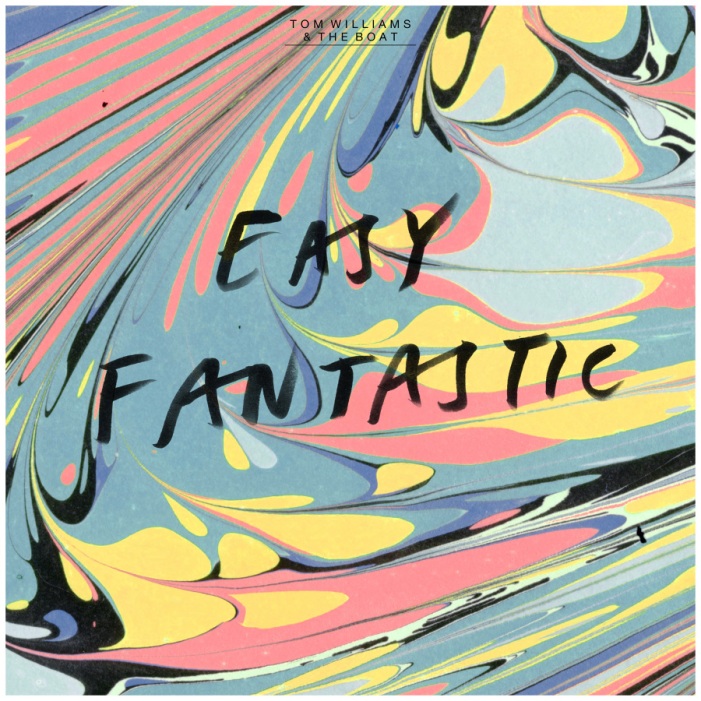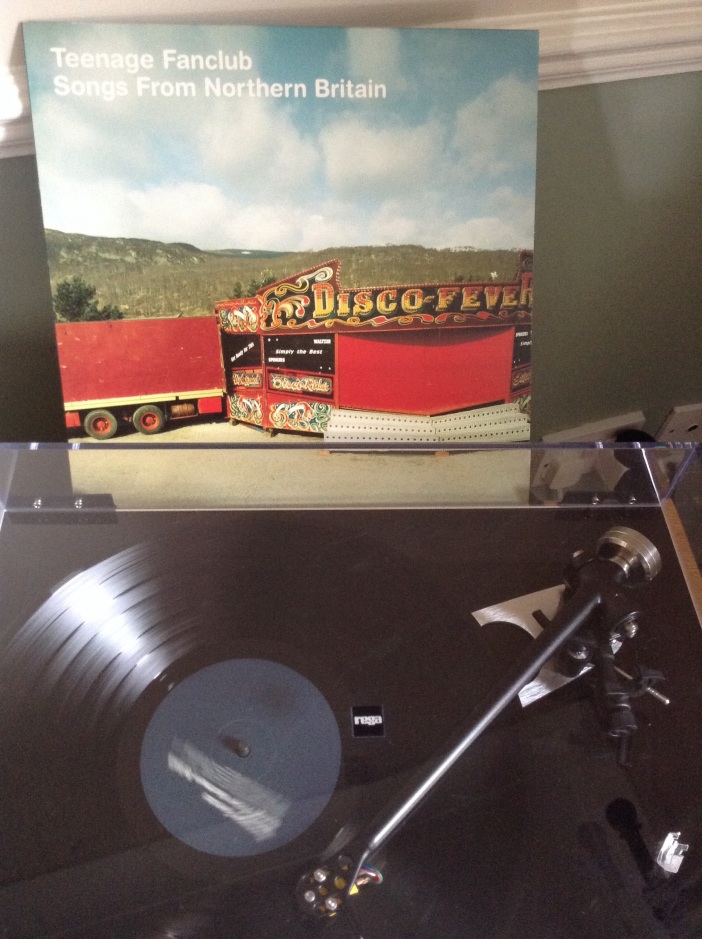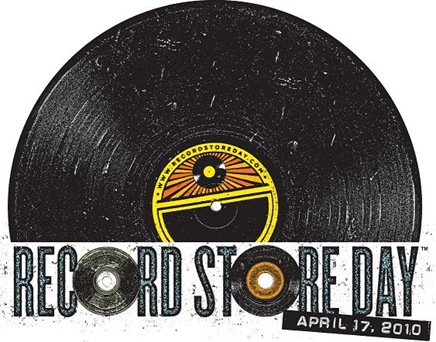The music book is a tricky thing to get right. You need to leap along at a reasonable pace to avoid losing the reader’s interest, but you have to reveal enough to not make them feel like you’re telling them what they already know. This year has yielded a number of excellent reads, as well as several hugely anticipated titles. ‘Isle Of Noises: Conversations With Great British Songwriters’ by Daniel Rachel is a great hardback thumbfest to dip in and out of, including a hugely interesting natter with Laura Marling. Alan McGee‘s ‘Creation Stories – Riots, Raves and Running A Label’ is certainly a page turner, if it is a little bit close to one middle-aged man trying to remind the world how ‘kerrrr-a-zyyyy’ he used to be. Tracey Thorn‘s ‘Bedsit Disco Queen’ would have been my favourite music title in pretty much any other year, laced as it is with warmth, humour and honesty. It is a fine, fine work and worth a read even if her (frankly excellent) music isn’t your sort of thing.
The Beatles were finally written about, after decades of being almost entirely ignored. Mark Lewisohn unveiled the first of three parts of his enormous biography of the band, covering up to the point where they started to be famous. ‘Tune In’ is sat behind me now, looking all big and important. Oddly enough, I’ve not yet got around to actually picking it up and reading it but I gather it has the Beatle geeks in raptures.
The most anticipated rock autobiography in recent memory also put in an appearance and I only wish it was still being anticipated as, at that point at least, I was convinced it would be bloody brilliant. As it was, the Penguin Classic notion lost any sense of charm when it became clear that Morrissey‘s ‘Autobiography’ was a half-hearted, unedited, poorly-executed and, let’s be honest, badly written piss in the wind. You could almost picture him grinning smugly at descriptions which he no doubt thought were quirky and whimsical but which often lapsed into cliche. Add in his woeful grasp of tenses or narrative structure and it became a very tedious read. By the time you reach the hundred odd pages on how big the crowds are on his foreign tours, any good will has long since evaporated and the bitterness sits plainly on the surface. It is probably the most disappointing aspect of this year in music and until he turns up with a band who can actually play and songs I can actually hum, he can keep tinkering with his legacy as much as he likes, but I won’t be listening.

However, as you might have guessed from this piece’s title, there was one quite remarkable work of music writing which towered above the rest of this year’s releases. After years of work by journalist, musician and massive fan Bob Stanley, a hugely entertaining history of modern pop was upon us. In August, en route back from my honeymoon, I spent an hour in Bob’s company, discussing this tremendous book and getting his views on how the music scene affects us all. The interview I wrote up for Clash can be read below and I cannot recommend ‘Yeah Yeah Yeah – The Story Of Modern Pop’ enough.
***
Charting history: Bob Stanley
Always a student of pop, as well as being a creator of some rather fine tunes himself as one third of Saint Etienne, Bob Stanley has undertaken the sizeable task of plotting a course through the history of popular music from the early fifties to the dawn of the 21st century. ‘Yeah Yeah Yeah: The Story Of Modern Pop’ is that rare thing: a doorstop of a book that breezes by in no time. Where so much narrating of the heady adrenalin rush found from popular music has somehow resulted in bloated, arduous prose, Stanley tells this tale as an eloquent enthusiast, drawing you in and guiding your listening at every turn. I met up with him to find out why he’d undertaken such a mammoth task and to get a sense of what makes popular music so endlessly fascinating.
This book took five years to craft, alongside your work with Saint Etienne. That commitment surely demonstrates that this project must mean a lot to you?
It was always a labour of love; it was never a chore. I made sure before I started that I had a pretty tight structure and that, if I thought of things along the way that I’d forgotten in the original layout, I’d be able to slot them in. It was quite overwhelming a lot of the time, especially lugging photocopies around on tour and stuff. It was me wanting to document stuff before it’s completely forgotten. Like the early fifties era or, what I find scary is, it’s almost anything up until The Beatles come along that suddenly feels very old and very far away. So it was kind of wanting to get that too. This is an era I grew up understanding and, before half of it gets lost, I wanted to get it down on paper.
As a music writer, artist and curator, how much of the book needed to be researched and how much did you already know?
There were a lot of things I thought I knew enough about, like the early days of house music, for one, which I didn’t, as it turned out. I’d be reading up on stuff to get anecdotes and make sure I wasn’t remembering things wrong. I was lucky in that I didn’t have to do any interviews. I wanted to keep all of the quotes contemporary and if they aren’t, I point that out. I wanted it to read like it would have felt to live through it and obviously I’ve only lived through about half the book, or at least that I can remember.
You follow a chronological path, but use this as a framework for stopping off at a range of artists. Presumably this meant you could take the odd diversion for artists for whom you harbour something of a soft spot?
Yeah. I suppose so. Obviously there’s a lot of my own personal taste in there. I did want to cover [American singer-songrwriter from the Sixties] Lou Christie and I wrote a lot about [Eighties band and label] Shut Up and Dance. There’s probably a lot more on them than there is on Aretha Franklin, for instance. But, on the whole, it’s people who’ve had a major influence in some way, even if they didn’t have it at the time. So, I had to write a fair amount on The Stooges who, as time goes by, seem more and more important. A lot of later music goes back to The Stooges, and there’s no obvious precedent to them either. The framework was an excuse to bring in things I wanted to write about occasionally. But, while I was writing it, I think one of the things that surprised me was how much the structure did pretty much sit alongside the traditional history of rock. It ended up being much closer to that than I thought it was going to, but hopefully that makes it more readable, or less idiosyncratic.
You point out some of the comically awful lyrics of various eras, such as Bob Merrill’s “If I knew you were comin’, I’d have baked a cake, howdja doo, howdja doo, howjda doo.” How important are lyrics in pop music?
It’s not crucial, but bad lyrics can easily wreck a song. It’s more important not to write some dreadful lyrics than to write a terrific lyric. Bob Merrill and that whole era was something I didn’t really know much about before I wrote the book. The artists who were huge at that time are largely forgotten. The period from the end of the war is something which people have a fairly good handle on: swing, Glenn Miller, the early days of Frank Sinatra. But the early fifties, immediately before rock and roll, are really undocumented. That was a fascinating period to research.
You talk in the book about how the emergence of The Beatles put everything that had come before into a museum – could that happen again?
I don’t think so. It feels like everything from the past is part of the present now, which kind of means nobody thinks of what’s going to happen in the future. The Year 2000 was a red line when I was growing up; everybody thought what would life be like in the year 2000 and, particularly, what would music be like? So I’m quite obsessed with music from the year 2000 because it exists now, it’s a thing. Because of that, it’s very difficult to make stuff that sounds brand new and for something to have that much of a completely overwhelming effect – I can’t really see how it would happen, but I’d love to be proved wrong.
There’s a great line in the book about nobody wanting to know about how much porn Jarvis had been watching in his hotel room, they just wanted Billie’s cheerful pop. Britpop seemed really exciting when I was living it, but now it seems quite sad and limp. You say that it was “a reaction against new ideas.” Did it leave any significant mark on music?
I think it’s still quite hard to put it into perspective, because there are so many people like yourself who were younger than me when it happened and really love a group like the Longpigs, who I just think are absolutely unlistenable. But I’m very fond of what went immediately before it, and we were part of it. Denim, World of Twist and Pulp were the only groups out of that time who were clearly looking back to the Sixties and Seventies, but trying to do something new with it, and that’s what Britpop didn’t really do at all. It was sticking its fingers in its ears about what else was going on around it, and that’s what I found disappointing about it all. Suede sound a lot better to me now than they did at the time. I couldn’t really get on with Brett’s voice then, but now I can see where their place is and they’re a little bit under the sort of Blur, Oasis, Pulp thing. It never felt like they were smaller than Pulp at the time, but they do seem smaller than Pulp now, and they certainly wrote some really cracking tunes.
Does the fact that Britpop can mean so much to some people but very little to others demonstrate how important context is to the enjoyment of music?
I think context is crucial in trying to understand why a record is a great record and why a song is a great song. You have to really know what else was around it at the time. Whenever I’ve looked at old charts, thinking I’ve got a fair idea in my head of what were the biggest selling records of, say, 1967, it’s never what people would think if they just heard things still played on the radio now or read a book about Jimi Hendrix. So, I think to get the full impact, context is really important.
You raise this point in relation to the whole late-Seventies punk and post punk bands, noting that they weren’t as era-defining as the media would have it these days.
Absolutely. There was a recent Big Issue cover with The Clash on it and the quote was “We had to do it. It was now or never!” It’s like, how can you say that now? I presume that’s a current quote, and I presume it’s a new interview they’ve done with Mick Jones, but it doesn’t make any sense. It wasn’t now or never. Nothing really changed. I mean, things did change, but it wasn’t the big seismic change that they wanted; it wasn’t Year Zero. And The Clash, of all people, with what they did fairly soon afterwards, should feel embarrassed to be saying things like that.
You suggest that Motown’s primary role wasn’t to make us think so much as make us dance. That seems pretty common in modern pop. Has anything from the last 15-20 years done much more than make us dance?
God, what’s happened in the last ten-fifteen years? There must be something that’s done more than make us dance. It’s part of the idea that it’s very difficult to do something new but the Manics, I suppose, are an example. It was twenty years ago, but they intentionally set out to make people not scared to be seen as intelligent. They’d deliberately drop names in where they guessed people may not know who they were talking about, and those people would then look them up and, from that, they got a really devoted following, which I think is really admirable. I can’t think of anyone since who’s really done that. I suppose my favourite things from the last ten-fifteen years would be Zenomania productions, which are pretty straightforward pop that’s just there to make you dance, but they can be quite sly with how they play with the formula. But maybe it’s not that intellectually stimulating!
The Nineties was a weird decade, where musical waters were muddied. When you look at old charts from that time, there’s such a strange mix that it almost feels like anyone could sell a few records at that point?
Well, I find the early Nineties a really fascinating period and there’s a lot of stuff from then that is good, it’s just none of it was coming from Britain, really. You had Babylon Zoo at Number One at the heights of Britpop. I was reading a thing about that recently and somebody said it’s kind of a bit grunge and a bit dance and it covers so many different bases, even though it’s a horrible record. That kind of explains why it was such a big hit.
That’s it though, isn’t it? It demonstrates quite well the idea that all bets were off and anything could be a hit.
What a strange record. It’s got to be one of the weirdest things ever released. It’s a record that everybody bought, even though they knew it wasn’t really what they wanted. You just want to hear the first thirty-five seconds and that’s it.
An example of something so odd that still deserves its place in pop history seems a suitably peculiar note to finish on.
It all finished with Babylon Zoo.















